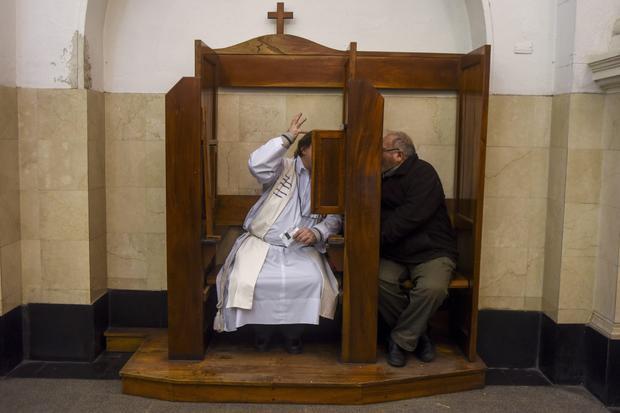|
Vatican court rejects laws obligating priests to report sexual abuse revealed in confessions
By Anna Matranga
[with video] The Vatican's highest court issued a document on Monday approved by Pope Francis strongly reiterating Catholic teaching that priests may not, under any circumstances, reveal information learned inside the confessional. The document was a response to mounting political and social pressure for priests to report details of sexual abuse of minors acquired during confessions to authorities. The document states that any legislation aimed at forcing priests to report such information would be an "unacceptable offense" against the church's freedom from secular power, as well as a violation of the religious freedoms of both the penitent and the confessor. The Vatican said it felt it was "necessary to intervene," to explain the importance of the confessional seal to the church, and to promote understanding of it. The statement came as a bill makes its way through the California legislature that would require clergy members to report confessions of sexual abuse. The legislation could force California priests to choose between breaking the law and violating the seal of the confessional. Seven other U.S. states have such laws on their books, as does Ireland and two of Australia's eight states. Similar laws are being debated in Chile.It is unclear if any priest has ever been in a situation to comply with these laws in those places -- or if any have been prosecuted as a result of non-compliance. The six-page document was issued on Monday by the Vatican's Apostolic Penitentiary, which deals with issues of confessions, also known in the Catholic Church as the sacrament of penitence or reconciliation. It was signed by the court's Major Penitentiary, Cardinal Mauro Piacenza, who said that while the concept is not always understood in modern society, the seal of the confessional is inviolable, indispensable and necessary for the priest's (referred to as the confessor) freedom of conscience. "The sacramental seal is indispensable, and no human power has jurisdiction, nor can it claim it," he said. "Its roots are in the very nature of the sacrament, to the point that no exception can be admitted in any Church framework, let alone in a civil one." During confession, Catholics consider the priest just a conduit for the penitent's confession directly to God. The confessor is never allowed, for any reason whatsoever, "to betray the penitent with words or in any other way." Indeed under church doctrine the priest must defend the seal of the confessional even if it means shedding his own blood. In addition, Piacenza said a priest can never oblige a penitent to turn him or herself in as a condition for absolution. Piacenza said a "negative prejudice" against the Catholic Church has led to "the unjustifiable claim that the Church herself, in certain matters, must conform its own legal order to the civil systems of the states in which it finds itself living."
|
.
Any original material on these pages is copyright © BishopAccountability.org 2004. Reproduce freely with attribution.
